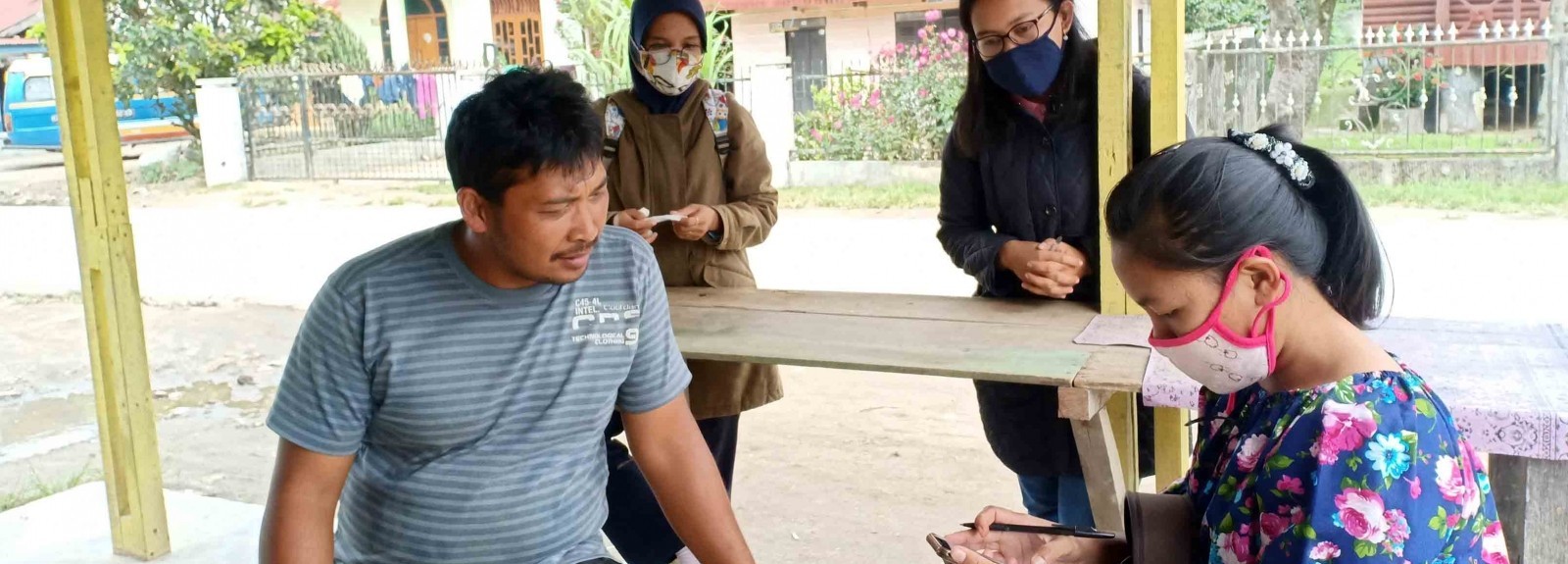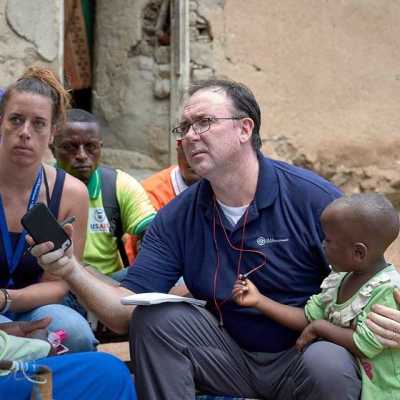Astaria Br Ginting and her husband are used to waiting. As farm laborers, they wait every morning as the sun comes up in the village of Bulan Julu, on the island of Sumatra, to see if any farmers will need their help harvesting vegetables, rice or the Indonesia region’s cherished coffee.
This morning’s wait isn’t for work; right now there is no work. Ginting is waiting for food assistance. Coffee harvest season is approaching in Indonesia, just as COVID-19 has limited movement. That means farmers, laborers and the rural cooperatives normally bustling with raising, harvesting, transporting and roasting coffee cherries have been stilled into something worse than silence.
“They’re worried no one is going to buy their coffee,” Lutheran World Relief Indonesia Program Manager Evi Kaban said. “It’s really difficult because they cannot travel. They cannot sell, and the cooperative cannot collect coffee.”
For Ginting and her family, who already struggle to make ends meet, the lack of work could mean a steep plunge into poverty.

Astaria Br Ginting carries food distributed by the project. She and her husband manage their farm and sometimes sell their products in a nearby weekly market.
The economic impacts of COVID-19
When farming and its supporting labor cannot move, work stops. Earning stops, and chronic hunger returns as a most unwelcome visitor.
As a country, Indonesia has made significant gains over the last 10 years or so, bolstering its productivity and income levels to pull itself from a decades-long status as a developing country to one of middle income, full of promise and growth.
Unfortunately, the COVID-19 shutdown curbed quarterly economic growth in Indonesia to its lowest level since 2001. With continued economic consequences anticipated into the next calendar year, the country’s economic gains may be lost.
Kaban said she worries about children of farm laborers like Ginting. “Eventually I worry malnutrition may again take root,” she said. Improper nutrition from conception to age 5 can forever impact a child’s development, inducing stunting and other challenges that may last generations. As usual, it’s the poor who will suffer most.
Pivoting programs to address COVID-19
Through your generous support, Lutheran World Relief has worked in Indonesia since providing aid to communities devastated by the 2004 Indian Ocean tsunami. One way is through supporting farmers to strengthen and protect their livelihoods from climate change and other challenges. In Bulan Julu, the Starbucks Foundation has helped LWR to mobilize coffee farming communities to form creative cooperatives that provide access to capital and markets, sharing resources to reach economies of scale for rural farmers.
Now, your love for your neighbors in need is helping these cooperative networks to support their members through the challenges of the novel coronavirus pandemic. On the hillsides of towering volcanoes, cooperatives that were originally set up to collect and produce coffee have been put to use in spreading information to farmers and laborers about how to keep safe from infection, and that emergency food assistance is available.
Your love has also made food distribution possible for your neighbors in Indonesia. The distribution was spread throughout a whole day, so that family members from each of the 2,234 households could collect assistance without creating a crowd. Cooperative workers took pains to sanitize and wash hands as much as possible before goods such as rice, cooking oil, sanitizing supplies and masks were distributed, along with instructions on how to stay healthy even as waiting, and worry, fill days once consumed by farming.
Though COVID-19 has changed the way we support Indonesia’s farming families, our commitment to serving our most vulnerable neighbors will remain the same — until your love reaches every neighbor.
Stop the spread of coronavirus
Your gift will help save lives.



